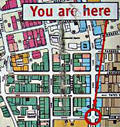 The NCIA Planning Group met on 19 March 2012 at TUC Congress House.
The NCIA Planning Group met on 19 March 2012 at TUC Congress House.
Present: Colin Rochester (chair), Melaina Barnes, Nick Beddow, Andy Benson, Ruth Cohen, Bernard Davies (notes), Rachael McGill, Maxine Moar, Laird Ryan, Nazreen Subhan, Frances Sullivan, Joe Taylor
Apologies: Adrian Barritt, Penny Waterhouse, Jonathan Hyams, Matt Scott
What’s been happening?
The NatCAN conference in Preston on 23 February 2012 involved ‘proper activitists’, people in solidarity, face-to-face and not just virtually and ‘people who ‘actually get it’.
NCIA has been continuing our efforts to build alliances, including with TUC and LVSC.
There is confusion and continuing struggles around the government’s ‘localism’ policies and initiatives, its planning legislation. TUC and NCIA have produced a joint paper on the localism bill which will be out in April.
We heard reports of problems of linking trade unionist and local community activitists, including a trade union training course which failed to deal with, even grasp, the main issues.
On a more positive note, there has been ongoing resistance to high speed rail link in Camden and squatted premises in Southwark has put pressure on the council around housing.
Main discussion: resourcing voluntary action
What’s going on?
Rachael had met people at Unite community training who individually wanted to resist cuts to community services, privatisation in the voluntary sector but lacked the tools, which are different in a community from a workplace. They were mainly low-paid workers in local and national charities; NCIA’s probably not much use to them.
Andy said there’s a split between paid workers and unpaid activists. NCIA’s approach includes both but we keep encountering the dissociation between the two.
Bernard asked if, now NatCAN exists, should NCIA stop focusing on activism and focus on anti-privatisation and the voluntary sector? Why is it important to bring it all together nationally, when that can happen locally?
It’s important because activists have no idea that the organised voluntary sector could help them. Frances gave an example of the ‘accident of two worlds colliding’ when she was working with squatters and said she had found out for herself lots of information that it would have been quicker to get from information worker s in the voluntary sector, although it was useful for her personally to find it out herself.
Nazreen said people are saying ‘stuff it let’s do it anyway’ – she gave an example of people near Euston campaigning against the high speed train line and said it was a mixture of desperation and optimism.
Laird talked about an environmental group he is a trustee for that has gone back to grassroots ways of doing things, applying for little bits of money from trusts, mutual support and sharing resources, keeping going on a wing and a prayer (just a wing for the ones that aren’t faith based).
Nick gave a quick sketch of the history of CVSs: the benevolent health visitor role, the information and advice role (here’s the law), and short-term pilot projects (likely to involve the more radical people). He reminded us that we’d probably all worked for organisations we thought were politically crap but managed to find good people to work with, sometimes in unexpected places, eg. crap trade unions but helpful trades councils.
What not to do
- Don’t waste time dealing with union bureaucracy.
- Don’t try and connect activists with the voluntary sector (an arm of the state) – they have no relevance to each other.
- Get back to the idea of society, and civil society.
- Mind our language: community means ex-working class; an activist is someone who puts their arse on the line.
- The work that needs doing can’t all be done in people’s spare time.
Glimmers of hope and support
- At least Unite are thinking about communities.
- Does an intermediary level exist – local agencies that can be brought together? Andy gave the example of work he’s doing in Hackney where managers are desperate to collaborate. But it’s resource intensive.
- Can we identify the living bits of the voluntary sector instead of kicking a corpse and expecting it to respond?
The landscape has changed
Voluntary organisations are looking for someone to sell their soul to (someone like Locality) but there isn’t anyone there anymore.
The game’s over for the voluntary sector – the big picture is a massive reduction in public spending, there are no resources. It’s down to a battle of ideas and ideologies, to expose policy, make logical arguments. NCIA should be confident about its anti-privatisation positon, eg. The contextualisation in NCIA’s paper Voluntary action under threat.
The momentum is very strong and poorly resisted by decision-makers. It hasn’t always been like this – the methodology of CVSs isn’t something to throw out when it is to respond to what people in local areas want. But people struggle to get past their managers, no time to even draw breath.
What to do
- Recognise the landscape has changed
- Keep lighting little fires
- Community development banner campaign
- Recognise that most people are doing a combination of existing in the current resource regimes, living outside these and creating something new.
- Maybe we should be trying to connect with private sector and rich individuals if that’s where it’s at.
- We need to figure out how we relate to the new forms of activism: Occupy, 38 Degrees
